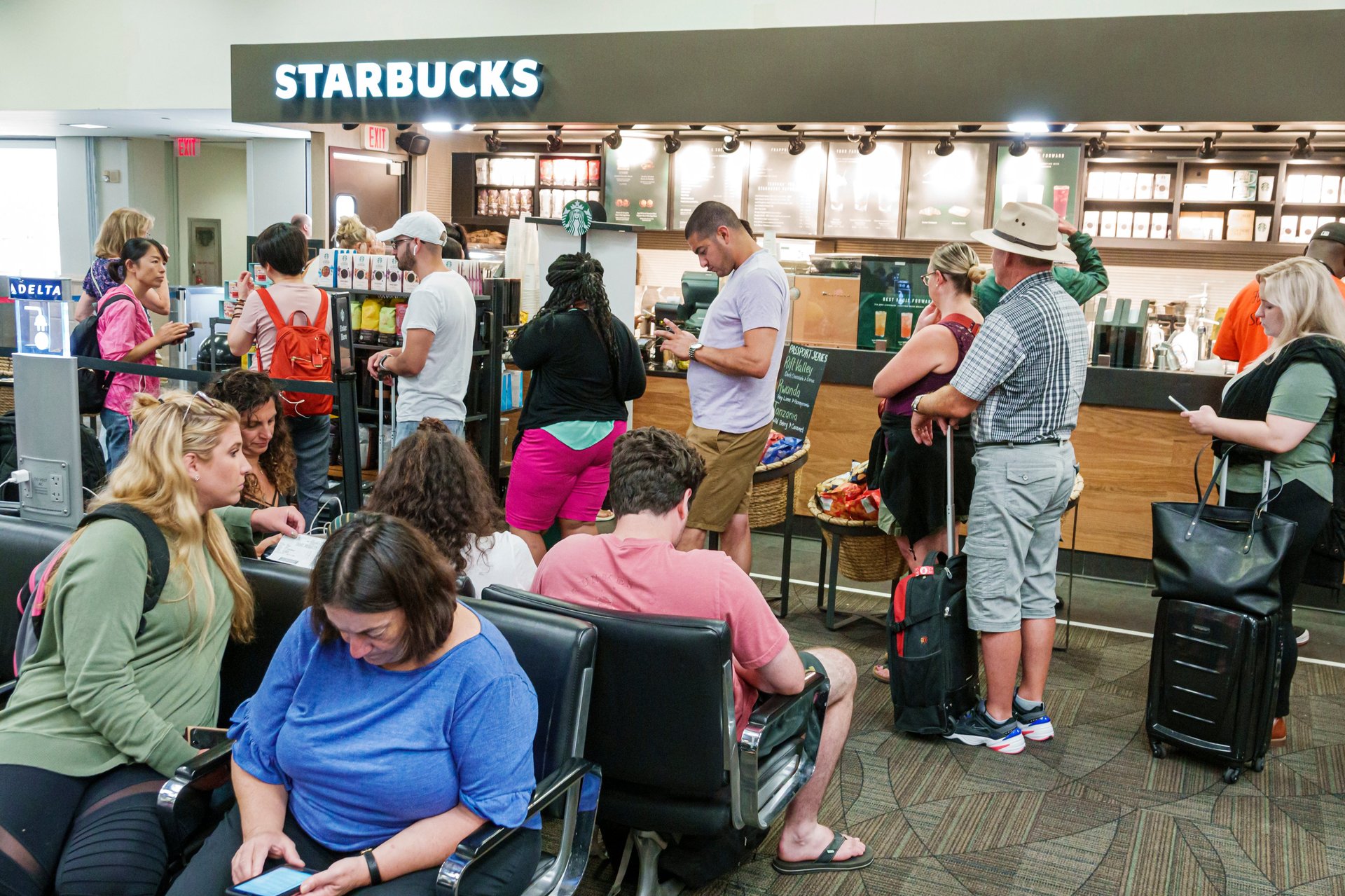The Starbucks big fix continues with mobile order limits
The changes aim to reduce wait times and ease pressure on baristas

Starbucks is rolling out more changes under new CEO Brian Niccol, and the latest shift focuses on mobile orders.
Suggested Reading
The coffee giant has implemented a limit of 12 items per order for those using the Starbucks (SBUX) app. The move aims to reduce wait times and ease pressure on baristas, a key part of Niccol’s strategy to get the company back to its roots. Additionally, Starbucks plans to make a Super Bowl appearance with commercials and a free coffee promotion to “reintroduce” the brand to customers.
Related Content
The “Back to Basics” approach has been part of a broader company overhaul. On Jan. 27, Starbucks redefined its store experience, bringing back classic coffeehouse elements such as condiment bars and handwritten names on coffee cups.
As part of the “vibe shift,” Starbucks is also adding personalized touches, such as intricate caramel designs on macchiatos and offering free refills on hot and iced coffee to all customers. These changes reflect Niccol’s efforts to restore Starbucks’ premium-status. Other adjustments include delivering fresh-brewed coffee in under four minutes, holding prices steady through fiscal 2025, paring down the menu by about 30%, and adding new vegan-friendly options like falafel. The changes are ongoing. Starbucks also eliminated the extra charge for non-dairy milk alternatives – a move that could appeal to the growing health-conscious customer base. In addition, two Former Taco Bell executives were recently hired to oversee operations and customer experience.
However, not all changes have been smooth. In an effort to improve safety and efficiency, Starbucks has restricted access to bathrooms and free water cups, making them available only to paying customers. This policy shift has generated mixed reactions and marks a departure from Starbucks’ 2018 decision to open bathrooms to everyone after an incident in Philadelphia involving Black men, who were arrested while waiting for a friend.
Most recently, CEO Niccol said that Starbucks would rather close stores than return to its open-door policy. His comments followed feedback from employees who expressed concerns about security and their safety at work.
“We’ll work with our employees to ensure they’re supported and protected,” Niccol said. “But if it gets to the point that it doesn’t make any sense, we’ll close the store.”
Adding to the complexity, Starbucks’ efforts to enhance store security have been followed by tensions with employees. In late January, contract talks stalled, and Starbucks and Workers United called in a mediator.
Looking ahead, Starbucks plans to lay off some workers, though the exact number hasn’t been revealed. Niccol promised more details within the next 60 days. The company has not provided specifics on which roles will be affected. Starbucks previously told Quartz the restructuring is aimed at improving accountability and streamlining operations. In Oct. 24, as part of the “Back to Basics” plan, Starbucks told corporate employees to return to the office three days a week or quit.